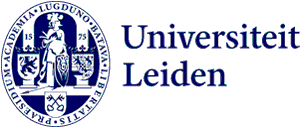
Veni grant for Neeltje Blankenstein for research to promote healthy online behaviour in youth
Taking part in TikTok challenges, online gambling, and forwarding nudes. ‘Why do adolescents take online risks?’, psychologist Neeltje Blankenstein wonders. Her research on online risk taking has been awarded a Veni grant by the Netherlands Research Council (NWO). Read her answers to five questions.

What will you be able to do with the Veni grant?
'I will use the Veni over the coming four years to study online risk taking, such as online gambling and sexting, in adolescents. I’ve previously been awarded a LUF grant to develop a questionnaire on this behavior. Now I can enrich my research with experiments and physiological and hormonal measurements. I will then be able to study how online risk taking changes with age (between the ages of 13 and 25, for example), why some adolescents take more online risks than others, and how the digital social context, such as likes and comments, impacts risk taking.'
Why have you been awarded a Veni grant?
'I’m passionate about studying all facets of risk taking. Adolescent online risk taking is very intriguing to me. It’s a very topical issue and I think that makes it interesting. My research profile with my background in developmental psychology, economic decision-making and biological psychology, and my experience with diverse research methods are also a good fit for this project. My colleagues provided me with a lot of help with preparing the grant application, and I’m very grateful to them. I’m both happy and proud to be awarded the Veni grant.'
How will your research benefit society?
'We know a lot about why adolescents take risks in the offline world, but so far very little research has been done on risk taking in the online world. Seeking out boundaries and taking risks are part of normal adolescent development, but these have to remain within safe boundaries. With my research I hope to promote healthy online behaviour in young people. Can we, for example, identify particular tips that will help with this? I think many parents feel a strong need for support and advice here.'
Who would you like to work with?
'I want to work with adolescents themselves, because they are the real experts on how they experience their online world. We’ll involve adolescents in focus groups, for example, to think about the design, recruitment and execution of the study. I also want to develop a ‘Challenge’ together with teens, in which research participants can take part. I can then examine what personal characteristics and aspects of social media motivate adolescents to join in online challenges such as the cinnamon challenge.'
How are you going to share your research data, and with whom?
'In the context of Open Science, all research data is made available for other researchers. I also want to translate the findings into an education module for secondary schools, in order to create awareness of the dangers and advantages of online risk taking.'
